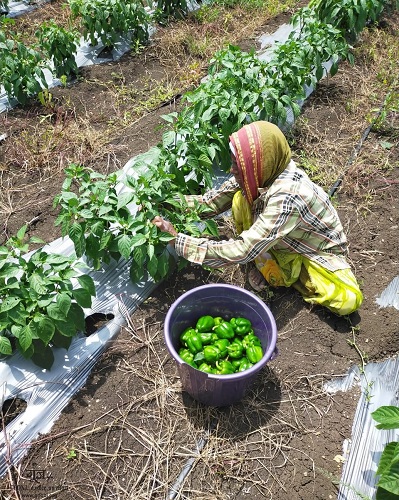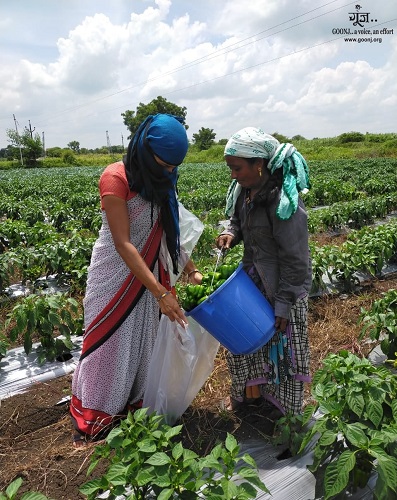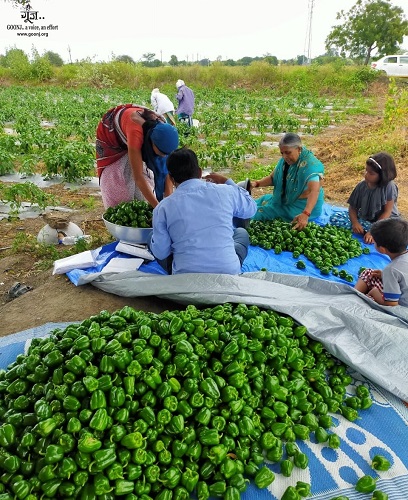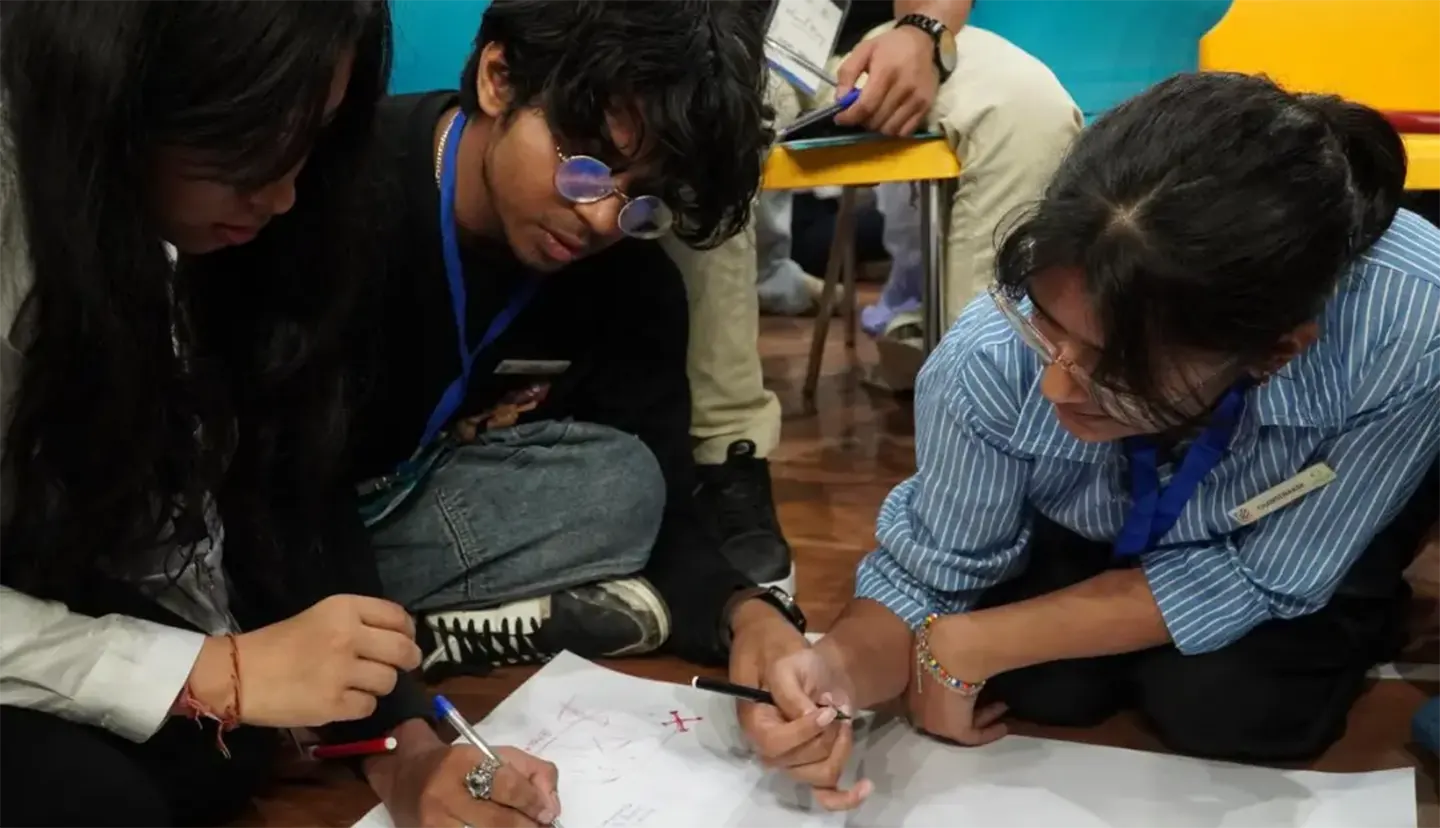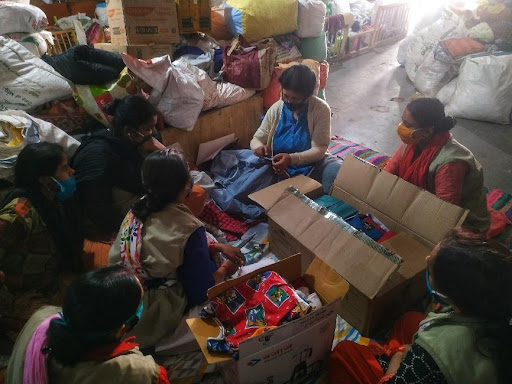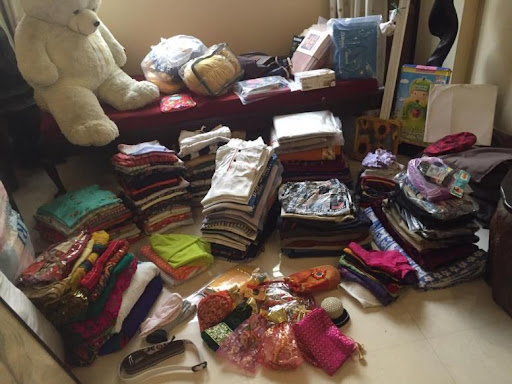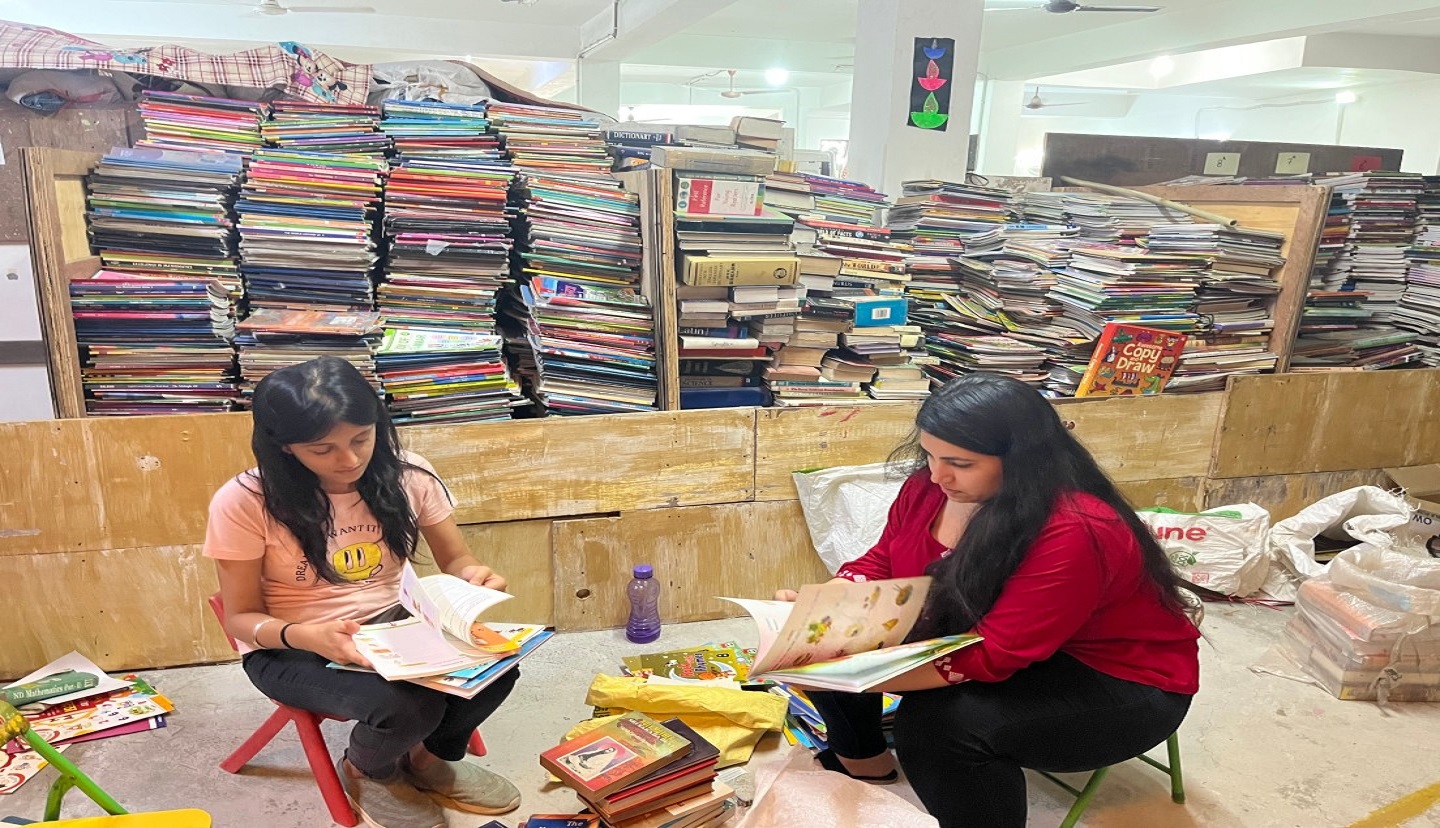In an attempt to address the problems associated with forced migration and to create livelihood opportunities, Goonj along with its partner organization, developed a sustainable and profitable model of Community Farming to help the local communities of Beed (Maharashtra) under Goonj’s ‘Vaapsi’ (Livelihood) initiative to support around 160 individuals with seeds and farming materials apart from backing them in procuring 15 acres of land on lease and in contributing towards the first year’s rent. With the participants undertaking the plantation of soyabean, cauliflower and cabbage on large areas, the initiative that began in June 2020 has received a great response. With their once low yielding field recently yielding around 400 kilograms of capsicum, the participants were happy in not only being able to sell their produce at market rates but also in being able to utilize their profits towards meeting the operation costs as well in paying the workers’ wages. Furthermore, the participants were also made aware of available government schemes including the scheme for installation of drip irrigation systems.
Located in the Marathwada region of Maharashtra, Beed is home to many people who were forced to seek employment in the sugarcane plantations in distant lands. The mountainous terrain plagued with water scarcity made Beed an unfavorable locale for farming. Moreover, the low yield, high input costs, negligible profit(s) and the absence of alternate options of sustainable livelihood also forced many to drop farming and to migrate to other areas of Maharashtra in pursuit of odd jobs like sugarcane cutting mostly for meagre wages.
However, today, things have changed. With hope renewed, almost all women involved with this initiative have stopped seeking employment with the sugarcane plantations. And, thanks to the efforts of the people of Beed, now the lush green fields of the community farm are a beacon of hope to these workers.
